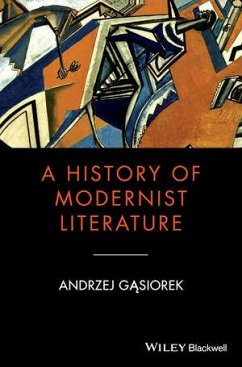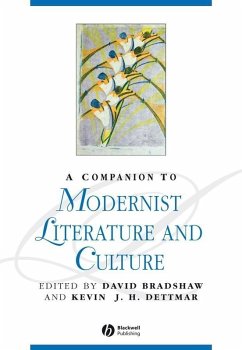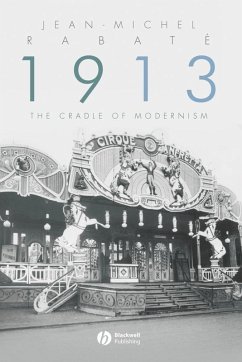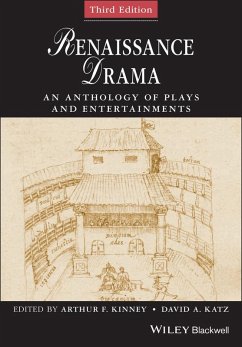
Modernist Literature (eBook, PDF)
Challenging Fictions?
Versandkostenfrei!
Sofort per Download lieferbar
37,99 €
inkl. MwSt.
Weitere Ausgaben:

PAYBACK Punkte
0 °P sammeln!
This inclusive guide to Modernist literature considers the 'high' Modernist writers such as Eliot, Joyce, Pound and Yeats alongside women writers and writers of the Harlem Renaissance. Challenges the idea that Modernism was conservative and reactionary. Relates the modernist impulse to broader cultural and historical crises and movements. Covers a wide range of authors up to the outbreak of World War II, among them Oscar Wilde, Joseph Conrad, Henry James, Langston Hughes, Samuel Beckett, HD, Virginia Woolf, Djuna Barnes, and Jean Rhys. Includes coverage of women writers and gay and lesbi...
This inclusive guide to Modernist literature considers the 'high' Modernist writers such as Eliot, Joyce, Pound and Yeats alongside women writers and writers of the Harlem Renaissance.
- Challenges the idea that Modernism was conservative and reactionary.
- Relates the modernist impulse to broader cultural and historical crises and movements.
- Covers a wide range of authors up to the outbreak of World War II, among them Oscar Wilde, Joseph Conrad, Henry James, Langston Hughes, Samuel Beckett, HD, Virginia Woolf, Djuna Barnes, and Jean Rhys.
- Includes coverage of women writers and gay and lesbian writers.
Dieser Download kann aus rechtlichen Gründen nur mit Rechnungsadresse in D ausgeliefert werden.












